There are two kinds of travel: first class and with children. - Robert Benchley
21 September 2019, Ouidah
Hotel Terra Nostra 6,000XOF (R150) Our guide at the Musee d’Histoire de Ouidah, formerly a Portuguese fort from which slaves were dispatched to Brazil, spoke excellent English, was well-informed and clearly emotional about his difficult topic.
He told us that up to 50% of slaves transported to the Americas from Africa died in transit, their bodies thrown overboard. Setting aside the (im)morality of slavery, which was the norm in virtually all societies for much of human history, Charl and I have always queried the poor economics of undelivered cargo, whether tobacco or labour. We asked our guide why he thought traders would mishandle slaves to the point of death, thereby drastically reducing their profits. His view is that (a) it was a selection process that delivered only the strongest slaves for sale, and (b) having paid one pipe for two slaves, the profits were so enormous that the traders could afford to arrive with fewer slaves than they set out with.
It still makes little economic sense to throw profits overboard. Charl read on the Marginal Revolution University blog of excessive deaths on the convict ships transporting British prisoners to Australia. Initially, government paid the private shippers per person boarded in Britain; when they changed the payment to live arrivals in Australia, the deaths all but stopped. In other words, changing the incentives changed the behaviour; but also, this illustrates that there are those who view the deaths of people they consider “sub-human” as perfectly acceptable. Hard to come to terms with…
Our guide talked of the 3Ms when it came to European engagement with Africa: missionaries, merchants, military. The British, Danish, Dutch, French and Portuguese all erected forts in Ouidah to manage their trade in slaves. All bought slaves from the local king (initially the king of Ouidah; after he was conquered and made part of the Dahomey kingdom, the king of Abomey) at the slave market, branded them, then kept them at their forts until ships arrived to transport them across the Atlantic. The going rate: two slaves for one tobacco pipe; 15 men or 21 women for one cannon.
The Portuguese governor at the fort in Ouidah was a Brazilian named de Souza.The Abomey king at the time was reluctant to trade in slaves. His brother, less so, so he conspired with de Souza to overthrow the king. Once king himself, he rewarded de Souza by making him his representative in Ouidah. De Souza married 106 women, fathering a dynasty alive and well in Ouidah today*. A sign in the fort museum proclaims that while the kings did not initiate the slave trade, they undoubtedly benefited from it.
*I asked our guide if the de Souzas were resented for the major role their ancestors played in the slave trade, but he sensibly said the current de Souzas were not blamed for the actions of their forefathers.
When the ships arrived and anchored offshore, the slaves were shackled together for the 4km walk to the beach. “Badly-behaved” slaves had their neck braces tightened to force them to toe the line. On the beach, they were loaded into small boats for the choppy trip to the waiting ships. Many threw themselves overboard then, taking with them those shackled to them. Packed like sardines, they spent three months at sea, eating and defecating and vomiting and dying where they lay. Many women arrived in the new world pregnant with the children of their captors.
We were told that the slaves were made to walk around the “tree of forgetting” before boarding the ships. This seems an unlikely waste of time, and obviously a pointless exercise. To illustrate its inefficacy, the museum displays fascinating photographs showing the similarities between Beninoise and Brazilian culture today: similar foods and religious practices and musical instruments and ceremonies.
Also in the museum were examples of applique, an artform that originated in Benin. And an image of an early flag of the Dahomey kingdom. Like the fly swat mentioned in an earlier blog, it blatantly spoke of power. Depicted on it were the skulls of enemy dead, held aloft in a basket the heads of an adulterous couple, and several sets of manacled hands.
Benin was colonised by the French after the slave trade was abolished in the late-1800s. Interestingly, the fort we visited remained in Portuguese hands until after independence in 1960, when it was claimed in 1961 by the Benin government and converted into a museum.
After concluding our visit to the fort, and a brief walk that took in a family voodoo temple and a carved tree, we took autocyle taxis to the beach to visit the Gate of No Return, commemorating those who left involuntarily, and the Gate of Return, celebrating second generation returnees from Brazil.
I foolishly left my hat at the hotel and returned from our adventures with a burned scalp, neck and nose, the latter making me Rude Dolf. Ouch.
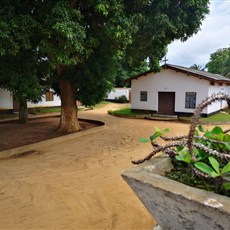
Museum ex Portuguese fort, Ouidah
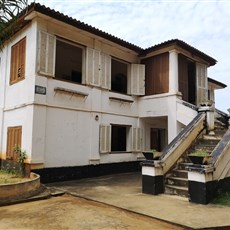
Museum ex Portuguese fort, Ouidah
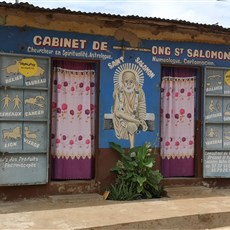
Ouidah
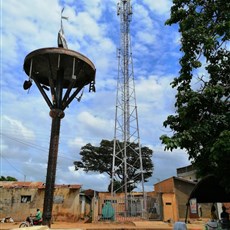
Ouidah - altar
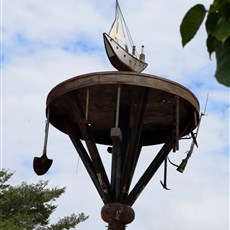
Ouidah - altar
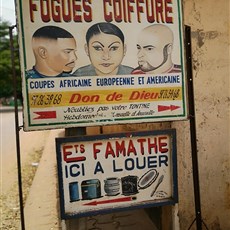
Ouidah
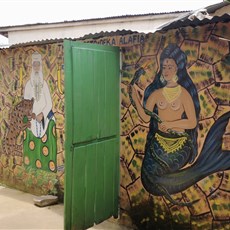
Ouidah - private voodoo temple
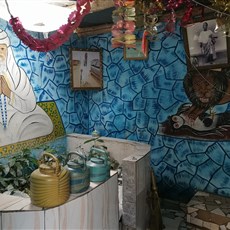
Ouidah - private voodoo temple
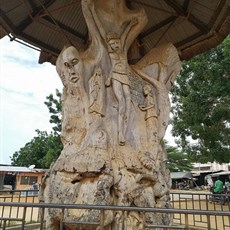
Ouidah
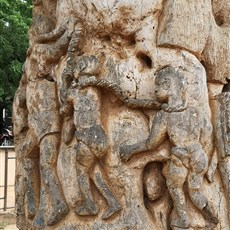
Ouidah
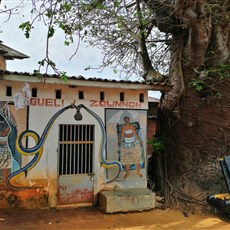
Ouidah
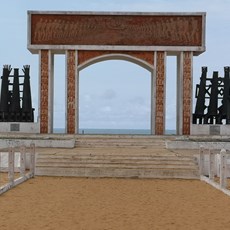
Gate of No Return, Ouidah
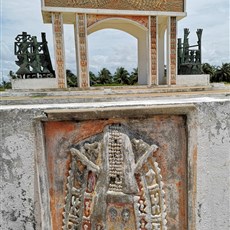
Gate of No Return, Ouidah
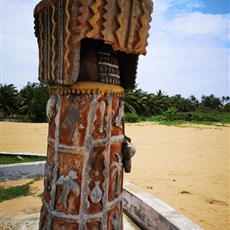
Gate of No Return, Ouidah
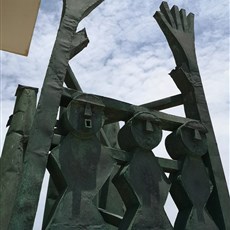
Gate of No Return, Ouidah
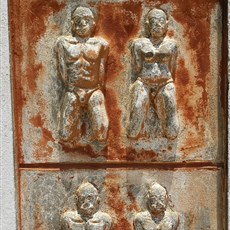
Gate of No Return, Ouidah
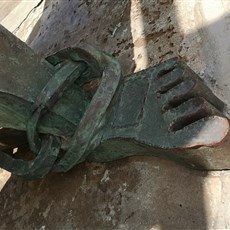
Gate of No Return, Ouidah
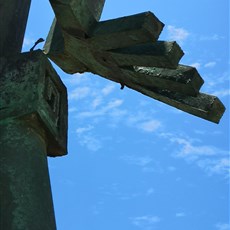
Gate of No Return, Ouidah
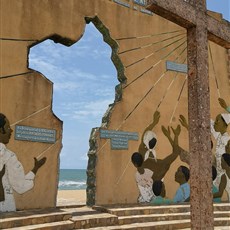
Gate of Return, Ouidah
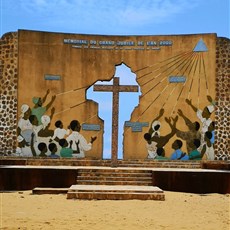
Gate of Return, Ouidah
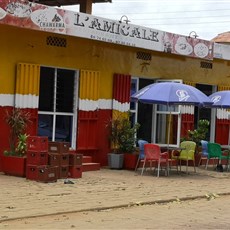
Ouidah - lunch venue
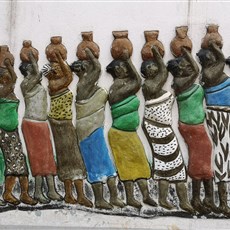
Ouidah - python temple
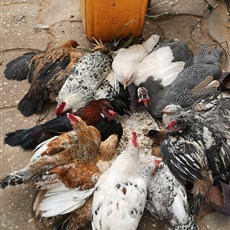
Ouidah - no wonder the chicken is tough
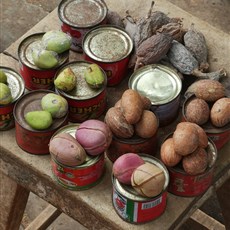
Ouidah